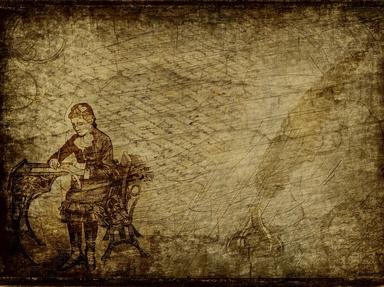Quiz Answer Key and Fun Facts
1. To whom is this poem addressed?
2. This poem was inspired by the character of Scottish colonial politician Sir Leander Starr Jameson. He was known for his involvement in the Jameson Raid in the South African Republic, which led to what war?
3. The poem begins, "If you can keep _____ when all about you / Are losing theirs and blaming it on you." What do you need to keep about you?
4. What are referred to as "those two imposters" in the poem "If"?
5. "If you can bear to hear the truth you've spoken / Twisted by knaves to make a trap for fools, / Or watch the thing you gave your life to, broken, / And stoop and build 'em up with worn-out" what?
6. In "If", who should a man aspire to "walk with" and yet not "lose the common touch"?
7. What should a man not allow to hurt him?
8. "If you can fill the _____ minute / With sixty seconds' worth of distance run..." How is the minute described in this verse?
9. In what historical fantasy book by Kipling did this poem first appear?
10. What American-born British poet included this poem in his 1941 compendium "A Choice of Kipling's Verse"?
Source: Author
skylarb
This quiz was reviewed by FunTrivia editor
looney_tunes before going online.
Any errors found in FunTrivia content are routinely corrected through our feedback system.

